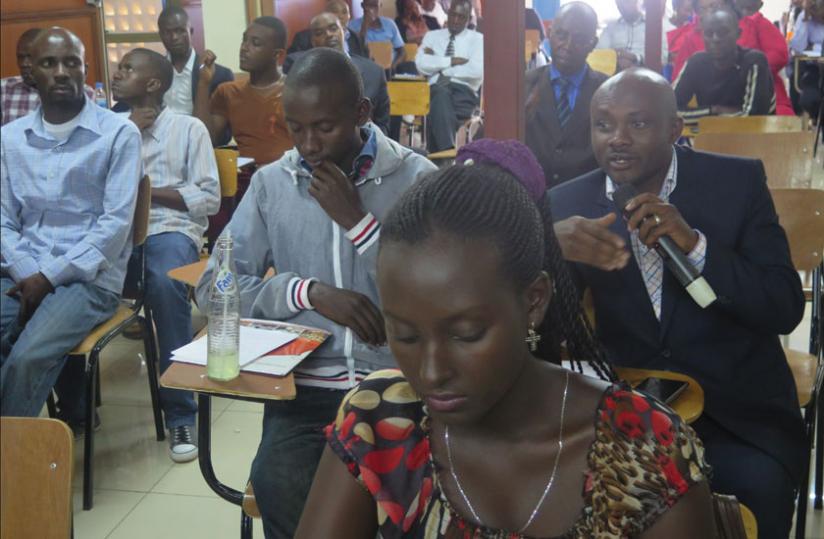Local and regional media practitioners and owners have been challenged to report issues that foster regional integration, as well as identify areas where Rwandans can invest or work in other East African Community (EAC) countries.


Localand regional media practitioners and owners have been challenged to report issues that foster regional integration, as well as identify areas where Rwandans can invest or work in other East African Community (EAC) countries.
The call was made during a public seminar on the role of media in the integration and peace building process in EAC organised by the Jomo Kenyatta University of Agriculture and Technology (JKUAT) Kigali Campus’ Mass Communication department on Friday.
Many of the speakers at the seminar said the media has failed East Africans "because they focus on issues that are likely to derail the integration process (like conflicts) instead of informing Rwandans of the opportunities existing in the other EAC member states.
"The media should identify areas in other member states where local business people can invest or form partnerships.
"They should also help unemployed professionals find work in other EAC countries; these kinds of reporting will benefit the country and win the population’s support for the integration process,” they said.
Dr Josephat Bosire, the deputy vice-chancellor in charge of academic affairs at University of Kigali, blamed the media for low participation of Rwandans on the local bourse, saying reporters have opted for less serious issues and ignored reporting on development and economy.
"This approach has to change if the EAC capital markets are to attract investors, especially local ones,” he said.
Mark Suva, a lecturer at JKUAT, observed that media are the only intermediary between investors, service providers and investors, yet sometimes they fail to meet their role.
Antony Luvanda, the director of JKUAT Kigali Campus, said the seminar aimed at stimulating intellectual debate and interest in EAC integration affairs, especially among media practitioners and owners.
Judith Opot, a mass communication lecturer at JKUAT, urged the media to set the right agenda for EAC, noting that for the region’s integration to take root and be nurtured into a healthy union, media have to genuinely ‘rubricate’ the integration process.
She called for more training for journalists, saying most of them do not have the capacity to report authoritatively on EAC integration matters in a way that the audience will easily understand the information.
Opot suggested that for the media to fully promote EAC integration, they should get integrated, have common values and act with one voice in a more tangible way.
Joseph Njuguna, the University of Rwanda director of School of Journalism and Communication, observed that media should be at the forefront in informing East Africans why they should support the integration process and the development benefits that come with it.
"Media like conflicts...Some even believe that if there is a conflict that’s when they will sell or make media more interesting. But for the interest of the community, media need to identify and support common factors, issues and things that bring people together rather than separate them,” he counselled.
The seminar attracted students and staff from Mount Kenya University Journalism department, Institut Catholique de Kabgayi (ICK) Faculty of Journalism and Communication, University of Kigali, JKUAT and University of Rwanda Journalism and Communication department, as well as media and the general public.


